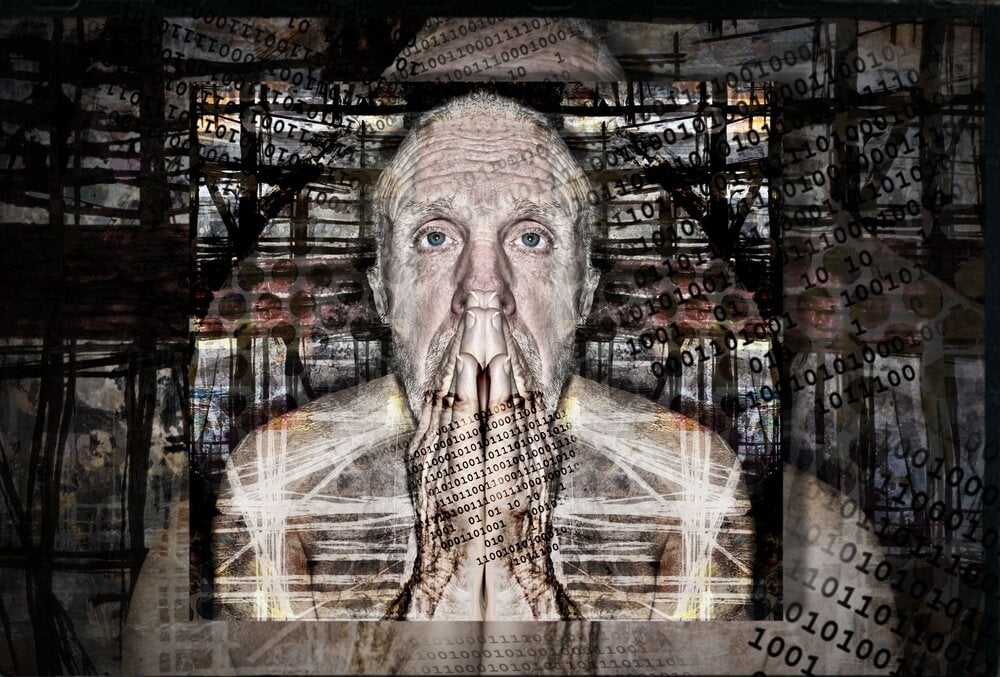There are times in life when we are overwhelmed, moments when we may be tempted to ask questions like: Why am I here?, What is my goal?What’s after death?Each person will ask different questions, however, we can all go through an existential crisis at some point in our lives.
It can appear at any time and affect both people with financial resources and those who do not, so this does not seem to be related to our material conditions.
- This usually happens when our sense of control diminishes.
- It is as if everything we were certain has become uncertain.
- Every crisis can bring suffering.
- But we can see the existential crisis beyond that.
- Let us go further.
“If it is not in your hands to change a situation that makes you suffer, you can always choose the attitude with which you face this suffering. ” – Viktor Frankl-
It refers to the moments when we question our existence; In addition, this usually happens unexpectedly and affects the way we usually see life; that’s when we start asking ourselves questions that can blow the foundations of our strongest convictions.
Existential crises often lead to a sea of feelings and thoughts, that is, they act intensely in our cognitive and emotional world, which is why many people see them as negative: they can be overwhelmed by various unknown sensations and perceptions. .
Moreover, existential crises can be linked to identity crises, when one doubts who he is, he can extend this doubt without limits, questioning everything and everyone.
The main feature to consider is the sense of emptiness that can accompany the crisis, although this is not unique to the existential crisis, it is usually the case, in addition, let’s look at other characteristics that help us identify if we are going. through a moment like this:
However, these characteristics may vary from person to person. We cannot forget that every human being is different, in addition, it is important to note that such a seizure can lead or be present in mental disorders such as depression, but beware!That doesn’t mean if we have one, we’re depressed.
While this may seem distressing, we can use it for our benefit, but how?View it from a different angle. Value our potential and use it to make us feel better.
Viktor Frankl, an Austrian neurologist and psychiatrist, emphasized this vision of the existential crisis. He proposed that man should have the ability to stand above the situation he is going through, that is, that he can overcome adversity; to do this, it is necessary to make sense of this specific situation and existence.
Thus, Frankl created Logotherapy, a type of psychotherapy that proposes that the main engine of the human being is the search for meaning and, in addition, sees the human being as unique and irreplaceable, so that the process of each person will be different.
Through these types of therapies we can discover what our purpose is and thus see a meaning in life. It’s about going beyond suffering; it’s about seeing the existential crisis as an opportunity to explore and move forward.
Logotherapy has been practiced for many years, an example of its current value is the article entitled An-lis existential and logotherapy: theoretical bases for clinical practice (existential analysis and logotherapy: theoretical basis for clinical practice) written by José Genger, which details the psychotherapeutic diagnosis and treatment systems currently in use.
In addition, we can stop seeing ourselves as people who suffer and frustrated by the sea of emotions that flood us and see it as a time to practice our resilience, that is, the ability to overcome adverse situations.
By changing our perspective, can we see concepts, ideas, resources? We don’t know. Moreover, when we accept that crises are an integral part of our lives, in many cases, anxiety gives way to serenity.
However, leaving an existential crisis without difficulty is an almost impossible task; thus, we have the opportunity to explore it, recognize it and look for what motivated it and where it can lead us.
Existential crises are part of life. The way we treat them is everyone’s business, but if we do so from a positive perspective, in which learning prevails, we will opt for a healthier path, so the important thing is to go beyond suffering or doubt, to emerge strengthened from the crisis.

